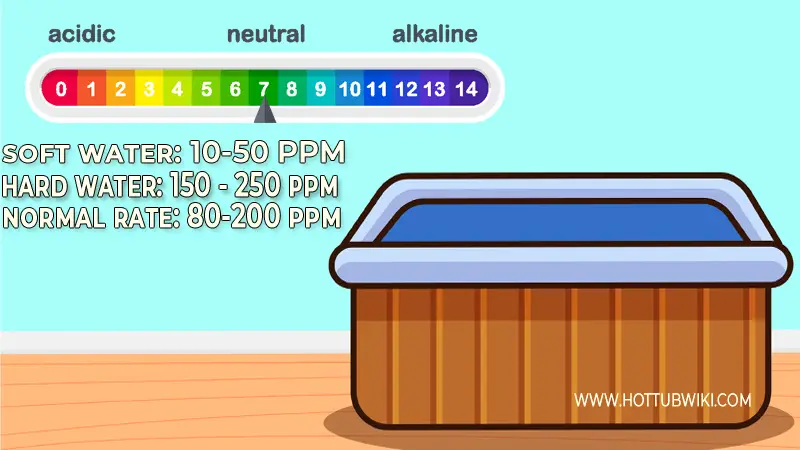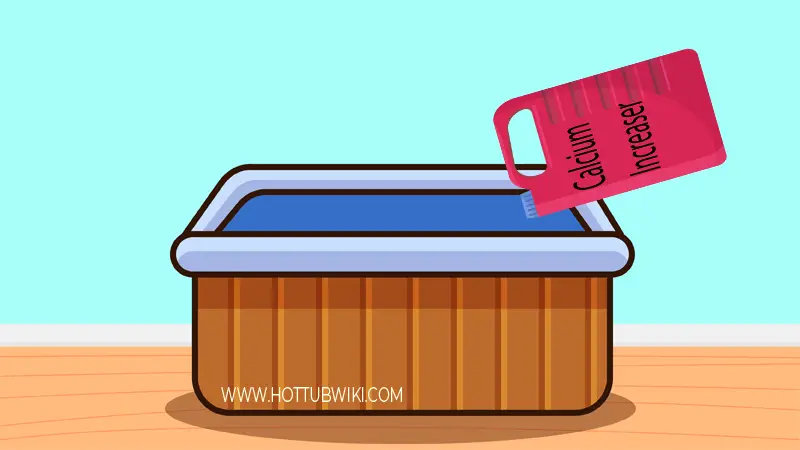There is usually a lot of concern when it comes to filling your hot tub with water. Many hot tub owners worry if soft water is bad for hot tubs. So, is it?
Soft water is bad for hot tubs. Using soft water in hot tubs can cause corrosion and foam in the water. This is because there is a very low level of calcium and other minerals in the water.
But that’s just the quick snapshot. Let’s take a closer look. But first, what do we mean by soft water? Let’s find out.
What is Soft Water?
Soft water refers to a water source or water body that has a very low level of calcium in it. Soft water doesn’t mean water that is soft in terms of texture. Soft water means the water is soft in terms of its mineral content. It is the opposite of hard water.
Hard water refers to a water source or water body that has a high level of calcium, iron, dissolved metals, and minerals in it. The presence of these minerals and iron in high levels makes the water hard. When these minerals are absent in the water, the water is considered soft.
Many hot tub users tend to be confused when they discover that soft water isn’t good for hot tubs. This is because hard water isn’t good for hot tubs either. When the water is hard, the iron and mineral deposit inside the water will cause scale build-up on the shell of the hot tub.
The irons like calcium and magnesium will also react harshly to the sanitizers that are added to the water in the tub. This harsh reaction causes green water and brown tint on the waterline.
So here is the million-dollar question. If hard water is bad for hot tubs and soft water is also bad for hot tubs, what nature of water is good for hot tubs? Well, the answer to that is below.
What Type of Water Is Good for Hot Tubs?
The ideal nature of water for hot tubs and spas is neither soft nor hard water. The ideal nature of water is a mixture of both. The water has to be between hard water and soft water.

For hot tubs and spas, soft water has a ppm (parts per million) rating between 10ppm and 50ppm. This is usually too low for hot tubs and can cause corrosion.
Hard water has a ppm rating between 150ppm and 250ppm. This is usually too high for hot tubs and can cause scale buildup on the shell.
The right level of water hardness for hot tubs is between 80ppm and 200ppm. Any rating above or below this range means the hardness of your hot tub water is way off and you should expect to have problems with the hot tub.
On average, the best level of hardness for hot tub water is about 180ppm. If the calcium level is measured at 180ppm, then you have nothing to worry about. But why is soft water bad for hot tubs?
Why Is Soft Water Bad for Hot Tubs?
Soft water is bad for hot tubs because it has a low level of calcium and this makes the water very aggressive. If the calcium and mineral levels in the water are very low, the water will become under-saturated.
This means the water doesn’t have all the properties it should have and the water will therefore become very aggressive in a bid to obtain the calcium that it needs.
Think of soft water like a zombie. Only that this zombie is not interested in blood, it is constantly in search of calcium. This means the metal parts of your hot tub aren’t safe with soft water in the tub.
1. Soft Water Can Cause Corrosion
Soft water can cause corrosion to the metal parts of your hot tub. These include the circulation pump, the jets, the shell of the hot tub, and the likes. Soft water also leads to foaming in the hot tub.

Since the calcium levels are low, the water look will appear foamy when you turn on the jets. The glossy parts of your hot tub will also become very dull and corroded with soft water in the hot tub.
2. Soft Water Can Cause Etching
Soft water can also cause etching. Etching is a process where the water in the tub starts to eat away at materials that contain calcium.
This is usually not a problem since the frame of the hot tub doesn’t contain calcium but this can be a very big problem if your hot tub base or foundation was made from concrete.
3. Soft Water Can Damage The Concrete Base
Concrete paste has a lot of calcium in it. When you splash the water or drain it and it falls on the concrete basement, the soft water will start to eat away at the concrete foundation.
This can cause the hot tub to become unbalanced. This small issue can damage the frame of your hot tub and that will cost a lot of cash to fix.
Now you know that soft water is bad for your hot tub. But how can you tell you have soft water in the hot tub and how can you increase the hardness of soft water? Keep reading to find out.
How Do I Know if the Water Is Soft?
To know if the water is hard or soft, you have to test it. Though there are a few signs that can indicate you have soft water in the hot tub but these signs are not the most accurate because they can be caused by other factors.
For instance, corrosion on the metal parts of the hot tub can be caused by soft water but it can also be caused by too many chemicals. So the best way to be sure you have soft water is to test the water.
To test the water, you can buy a water testing kit like a digital tester or test strips. Any of these will tell you how soft or hard the water is and it will also indicate if you need to lower or increase the hardness of the water.
Another alternative is to investigate your water source. You can ask the water supply company in your area for the calcium readings of the water that is supplied. If you live in areas where the water supplied is soft water, then chances are you will have soft water in the hot tub too.
Another indicator that you might have soft water is if you have white scale buildup in your shower head (bathroom).
If the result of the test shows that the water is soft, then you will need to increase the hardness of the water. How do you do that? Let’s find out.
How to Harden Soft Water in a Hot Tub?
If you have tested the water in the hot tub and you are sure you have soft water in there, you can increase the hardness of the water by adding calcium increaser to the water.
Different products can be used to increase the hardness of the water in the hot tub. They are known as calcium increaser, calcium hardness increaser, and calcium chloride. You can get such products at your local pool store.
1. Use Calcium Increaser
When you get the calcium increaser, you need to add it to the water in the hot tub by following the manufacturer’s instructions.

Some products are so potent that can increase the water hardness by 30ppm by adding just one tablespoon of the said product. So follow the instructions so you don’t end up with water hardness that will be too hard.
2. Turn on the Jets
As an expert tip, while adding the calcium hardness increaser to the water, ensure that the jets are running so that the water is well circulated and the calcium increaser is well absorbed in the water.
3. Use Shock
There are a few types of shocks you can use in your hot tub. One of them is calcium hypochlorite. Calcium Hypochlorite will raise calcium in your water to a very high level.
But, it’s only recommended to use this type of shock if you have a very low level of calcium. That’s because calcium hypochlorite can cause scale build-up in hot tub equipment. Calcium hypochlorite will also affect the pH of your hot tub. It’s best to avoid it and only use if there’s no other choice.
4. Baking Soda
Another way to raise water calcium hardness is to add baking soda. Baking soda does raise the hot tub’s calcium hardness. But, only temporarily. You have to be careful with the amount of baking soda you use. If you use too much baking soda then it will result in cloudy spa water.
Also, try not to use two different products at the same time to increase water hardness. If you add calcium chloride after treating the water with baking soda or soda ash, you will be left with cloudy water.
Related Read: How To Adjust Water Hardness?
Does Increasing Calcium Hardness Increase pH?
If you want to increase water hardness by using calcium chloride then you have to also monitor the pH levels. That’s because calcium chloride raises the pH levels. Except for pH levels, calcium chloride also raises alkalinity levels.
The alkalinity and the hot tub water hardness have to be gradually adjusted while you monitor the pH levels and ensure they are within the normal range (7.2-7.6).
